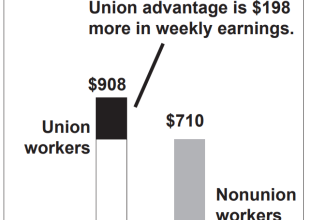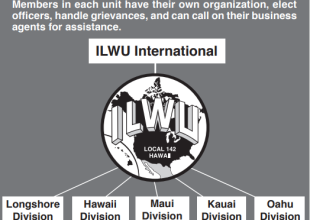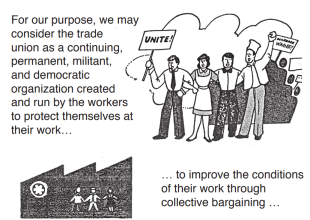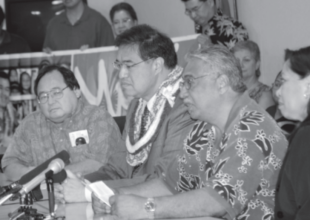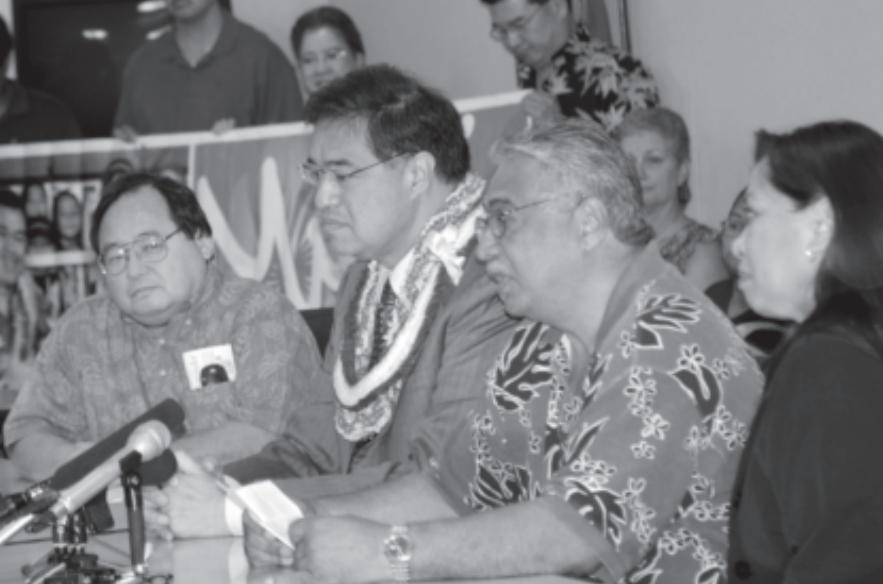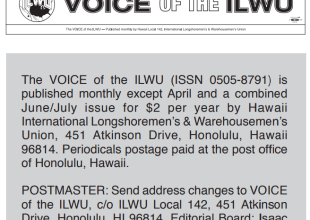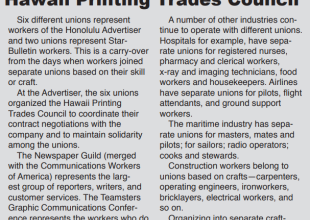Union members earn higher wages
In 2009, among full-time wage and salary workers, union members earned a median weekly wage of $908, while workers who were not represented by unions earned only $710 a week.
In 2009, among full-time wage and salary workers, union members earned a median weekly wage of $908, while workers who were not represented by unions earned only $710 a week.

